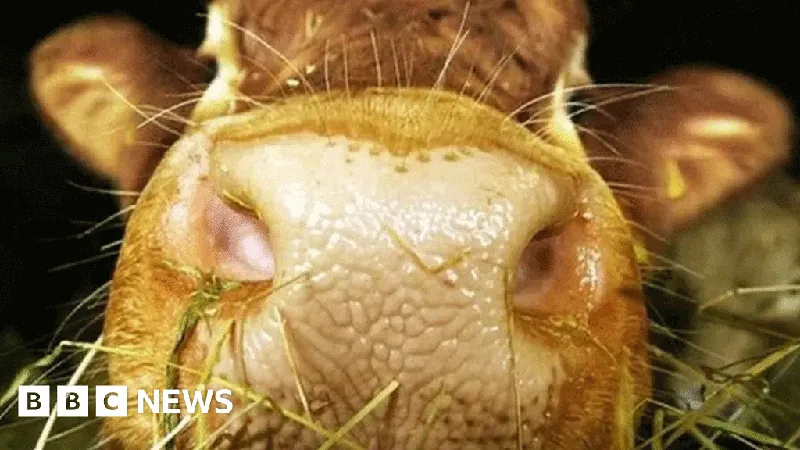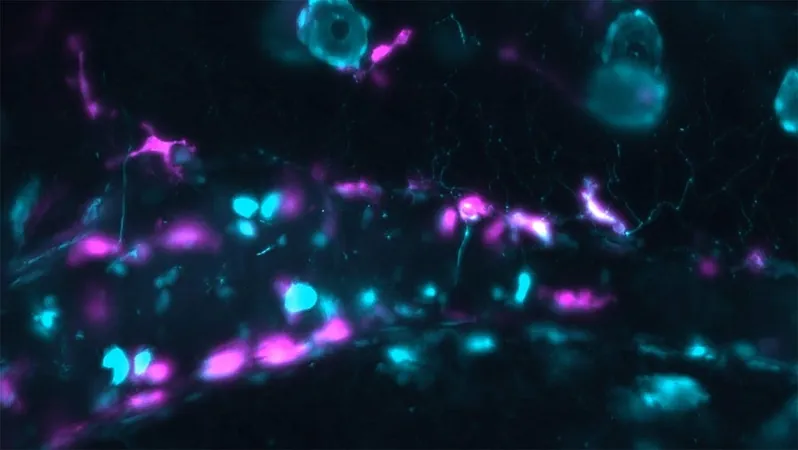
Panic Averted: Isolated BSE Case Confirmed on Dumfries and Galloway Farm
2024-12-06
Author: Rajesh
Panic Averted: Isolated BSE Case Confirmed on Dumfries and Galloway Farm
A single case of Bovine Spongiform Encephalopathy (BSE), popularly known as mad cow disease, has been confirmed at a farm in Dumfries and Galloway, Scotland. The discovery has reignited concerns over livestock health, but officials are assuring the public that there is no immediate threat to human safety.
Movement restrictions have been imposed not only at the affected site but also on other animals that may have been in contact with the infected cow. This precautionary action is part of an ongoing investigation to uncover the origins of this disease.
Sheila Voas, the Chief Veterinary Officer, identified this incident as an atypical strain of BSE, which is not transmissible to humans. Food Standards Scotland (FSS) has echoed this sentiment, confirming there is no risk to public health arising from the case. There are two recognized types of BSE: classical and atypical. The classical strain poses a risk to humans through the consumption of infected beef, while the atypical form is believed to occur spontaneously without any link to human transmission.
The alarming discovery was made through routine surveillance measures that continue to monitor the health of livestock across the nation. Agriculture Minister Jim Fairlie emphasized the rapid response from the Scottish government and affiliated agencies to mitigate any potential impact on the agricultural sector.
Fairlie commended the farm owner for their attentiveness, stating, “Their prompt action has enabled us to swiftly identify and isolate the case, significantly reducing the risk of wider industry implications.” The quick detection serves as a testament to the efficiency of the country’s rigorous BSE surveillance system, which has been in place since the devastating outbreak in the 1980s that led to the infection of 180,000 cattle and the slaughter of 4.4 million animals.
Ian McWatt, deputy chief executive of Food Standards Scotland, reassured consumers that stringent safety controls are firmly in place to shield them from BSE risks, reiterating that these protective measures remain crucial to public health.
While this case has drawn attention, it’s important to note that BSE occurrences have been relatively rare in the UK over the past decade, with very few cases reported. The most recent case before the Dumfries and Galloway incident emerged in Ayrshire earlier this year, showcasing the efficacy of continuous monitoring.
As further investigations unfold, the focus remains on ensuring the safety of both livestock and consumers, reinforcing confidence in Scotland’s agriculture and food safety systems.



 Brasil (PT)
Brasil (PT)
 Canada (EN)
Canada (EN)
 Chile (ES)
Chile (ES)
 España (ES)
España (ES)
 France (FR)
France (FR)
 Hong Kong (EN)
Hong Kong (EN)
 Italia (IT)
Italia (IT)
 日本 (JA)
日本 (JA)
 Magyarország (HU)
Magyarország (HU)
 Norge (NO)
Norge (NO)
 Polska (PL)
Polska (PL)
 Schweiz (DE)
Schweiz (DE)
 Singapore (EN)
Singapore (EN)
 Sverige (SV)
Sverige (SV)
 Suomi (FI)
Suomi (FI)
 Türkiye (TR)
Türkiye (TR)